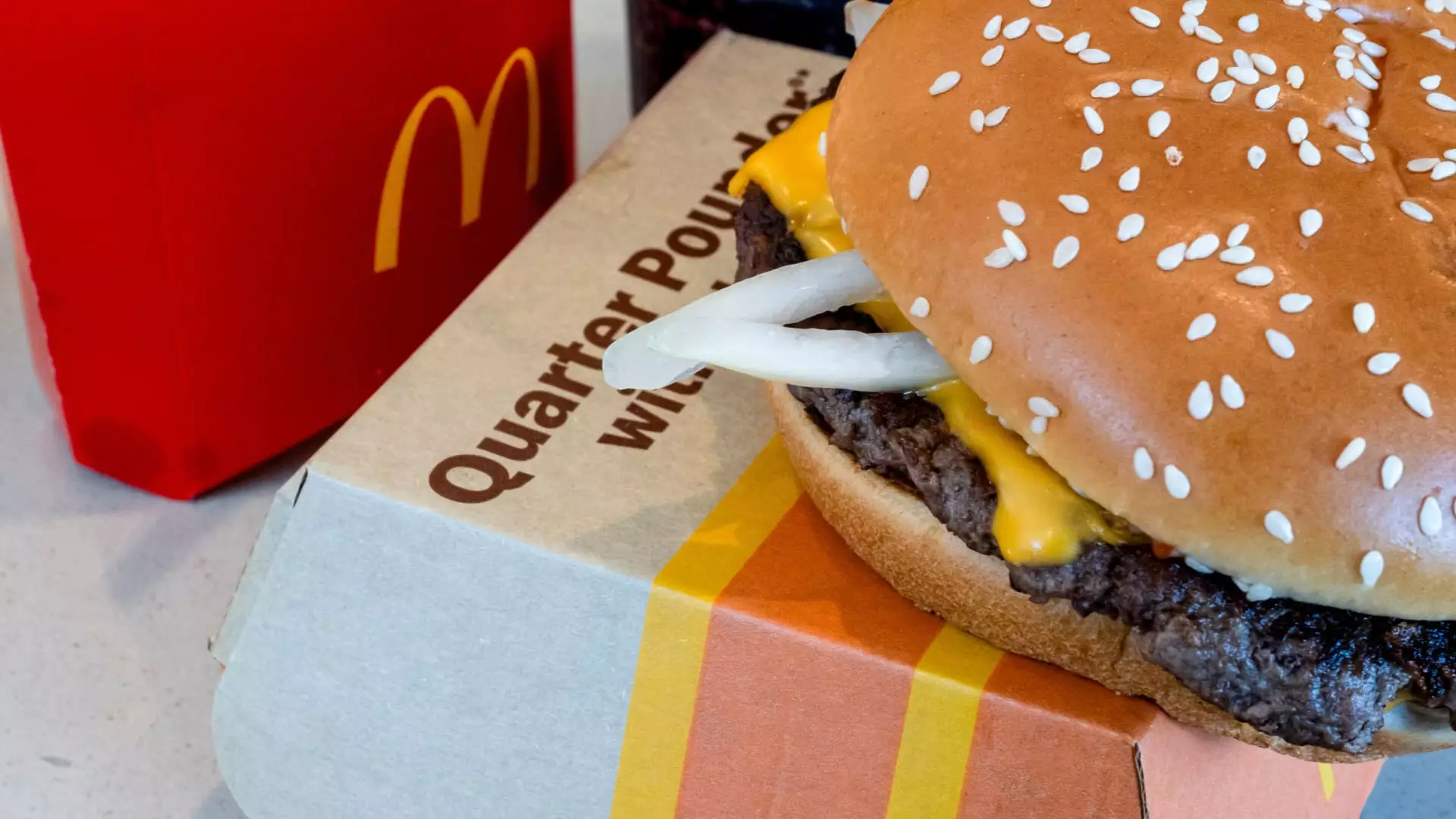In a troubling development for one of the nation’s largest fast-food chains, an alarming outbreak of E. coli linked to McDonald’s signature Quarter Pounders has emerged, leading to 75 reported cases across 13 states. The Centers for Disease Control and Prevention (CDC) has underscored the seriousness of this situation as investigations continue to identify the source of the pathogen. With 22 individuals hospitalized and a confirmed death of an older adult in Colorado, the outbreak raises significant concerns for public health officials and consumers alike.
E. coli, a bacterium that can lead to severe foodborne illness, poses a particular risk, evidenced by serious health complications like hemolytic uremic syndrome, which can result in kidney failure. To date, two individuals have developed this severe condition among the cases that have been reported. As investigations unfold, the statistics suggest that the actual incidence may be far greater than currently recorded, as many individuals may not seek medical attention or testing when they become ill.
While investigations are ongoing, the CDC has reported that most of the individuals affected dined at McDonald’s, with a majority consuming beef hamburgers. The age range of those affected spans from 13 to 88 years old, underscoring that anyone is at risk when foodborne pathogens are involved. The CDC’s caution regarding the potential for underreporting highlights a critical aspect of public health surveillance—the necessity for proactive testing and reporting of foodborne illnesses.
In response to this grave situation, McDonald’s has suspended the distribution of slivered onions within the affected areas, which health officials have identified as a likely vector for the contamination. Taylor Farms, the California-based supplier of the onions, has also initiated a recall on several raw onion products linked to this outbreak. Such concentrated efforts to trace and mitigate the sources of E. coli are essential to curbing wider public health repercussions.
The repercussions of this outbreak are not just health-related; they pose significant challenges for McDonald’s as a business entity as well. Stock prices dropped by 2% amidst rising concerns, reflecting investor anxiety surrounding the outbreak’s impact on consumer behavior and company profitability. After an extended period of stagnant sales, particularly in the U.S., McDonald’s finds itself grappling not just with this outbreak, but also with an increasingly price-sensitive consumer base hesitant to engage with fast-food establishments.
Recent market analyses predict modest growth in same-store sales—a mere 0.5% for the third quarter—but this outlook may be significantly undermined if consumer trust is shaken. The fact that nearly 20% of McDonald’s U.S. restaurants have temporarily halted the sale of Quarter Pounders signals a substantial operational impact. The decision to remove such a core menu item points to the seriousness with which McDonald’s is treating the situation, as they work to balance public health priorities with business continuity.
The ripple effects of this outbreak are extending beyond McDonald’s, as other fast-food brands like Burger King, Pizza Hut, KFC, and Taco Bell have also pulled onions from their menus in precautionary measures. This collective response emphasizes the interconnectedness of the fast-food industry and the immediate responsibility restaurants bear in safeguarding consumer health. In times of detected contamination, the entire food supply chain is scrutinized, and the repercussions for individual brands can be severe.
The CDC’s statement also reinforces the importance of vigilance concerning food safety issues. While McDonald’s assures customers of their commitment to maintaining safe menu items, experts suggest that barring a more severe crisis, the reputational damage may be minimal. Comparisons to a similar E. coli outbreak involving Wendy’s suggest that while immediate sales may be affected, consumer loyalty among fast-food patrons is resilient if addressed effectively.
As the investigation into the E. coli outbreak continues, McDonald’s faces the dual challenge of addressing consumer health concerns while preserving confidence in its brand. The proactive measures being adopted—such as pausing the distribution of slivered onions and collaborating with health authorities—are crucial first steps. However, broader conversations surrounding food safety practices and consumer education about foodborne pathogens must be prioritized to mitigate future risks.
Ultimately, the response to this outbreak will be closely watched by consumers, investors, and public health officials alike. The implications extend beyond a single company, as they highlight the urgent need for systemic improvements in food safety across the industry to prevent similar occurrences in the future. As the CDC cautions that there may be more undetected cases, it reinforces the pivotal role of health agencies, corporations, and consumers in a united front against foodborne illnesses.

